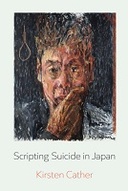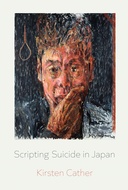Explore

Japan is a nation saddled with centuries of accumulated stereotypes and loaded assumptions about suicide. Many pronouncements have been made about those who have died by their own hand, without careful attention to the words of the dead themselves. Drawing upon far-ranging creations by famous twentieth- and twenty-first-century Japanese writers and little-known amateurs alike, Kirsten Cather interrogates how suicide is scripted and to what end. Entering the orbit of suicidal writers and readers with care, she shows that through close contextualized readings these works can reveal fundamental beliefs about suicide and, just as crucially, about acts of writing. These are not scripts set in stone but graven images and words nonetheless that serve to mourn the dead, straddling two impulses: to put the dead to rest and to keep them alive forever. These words reach out to us to initiate a dialogue with the dead, one that can reveal why it matters to write into and from the void.
“Equal parts literary analysis and social psychology, this subtle and profound study engages with a wide range of Japanese places and people to demonstrate the insoluble entanglement of suicide with the practice of writing.” — Jordan Sand, author of Tokyo Vernacular: Common Spaces, Local Histories, Found Objects
“In this stunning book, Kirsten Cather questions the relationship between the acts of suicide and writing, and why and for whom such ‘autothanatography’ trends as so popular in Japan. Scripting Suicide in Japan is masterful in its attention, as hauntingly beautiful as it is analytically profound.” — Anne Allison, author of Precarious Japan
“This meticulously researched monograph presents a radical rethinking of the very limits of literature itself, showing us what it might mean to ethically engage with ambivalence, silence, and the ultimate unknown of death. It is a tour de force.” — Christina Yi, author of Colonizing Language: Cultural Production and Language Politics in Modern Japan and Korea
This book is included in DOAB.
Why read this book? Have your say.
You must be logged in to comment.

